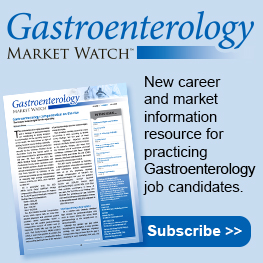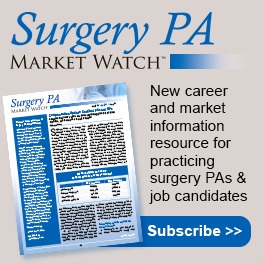Timeline Considerations
- Typically, it will take most of your final year of training to complete all the steps required to start your first practice opportunity. If you plan to start in the summer after residency, note that state boards are bombarded with applications at this time of year. Credentialing can also take longer than you might expect, so complete the necessary paperwork as soon as possible.
- Ideally, residents and fellows should start looking for a new position is at least one year before completing training. If you are seeking an academic position, start your search even earlier, 18 months or more before you will be available.
For the full article, please read the Neurosurgery Market Watch, Volume 4, Number 1, Spring 2014 – Page 6.
Cover Letters
- A well-crafted, thoughtful personal statement is the best way to make a complete first impression with a potential employer and communicate not only what you accomplished, but also what you are looking for in a practice setting.
- Consider the cover letter an extremely advantageous way for you to introduce yourself, explain what you are looking for, and explain your career to date. It’s an opportunity to set yourself apart in some less tangible way—all employers these days are looking for that ideal combination of talent and team player.
For the full article, please read the Neurosurgery Market Watch, Volume 3, Number 3, Fall 2013 – Page 6.
Priva-demic Opportunities
- It is important when considering a priva-demic or hybrid model to determine which resources are in place and what the actual academic opportunities are, realistically. Oftentimes, neurosurgery departments have affiliations with local clinics and hospitals, and are recruiting for non-faculty positions directly. These priva-demic opportunities tend to be very solid, as the relationship has already been established and the resources are evident.
For the full article, please read the Neurosurgery Market Watch, Volume 2, Number 2, Summer 2012 – Page 3.
Site Visits
- This is an essential part of evaluating a practice opportunity, but it’s important to remember that it is also an interview. The facility is showcasing what they have to offer, but it’s also an opportunity for candidates to promote themselves.
- After the visit, if there is mutual interest in moving forward, convey your interest almost immediately to key personnel involved in the interviews—that might not have come across during the visit. A thank-you letter, carefully crafted and sent promptly either by email or traditional mail, is absolute must, even if you plan to continue your search.
For the full article, please read the Neurosurgery Market Watch, Volume 3, Number 1, Winter 2013 – Page 6.


